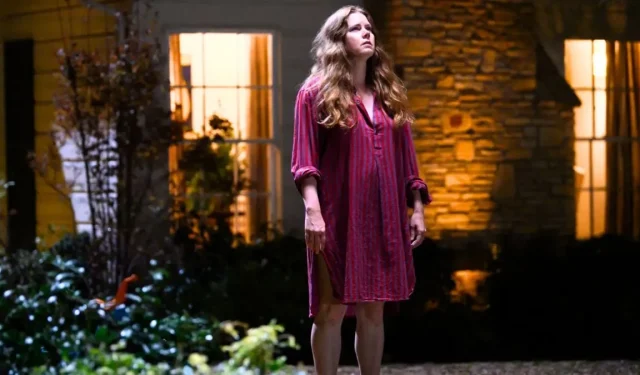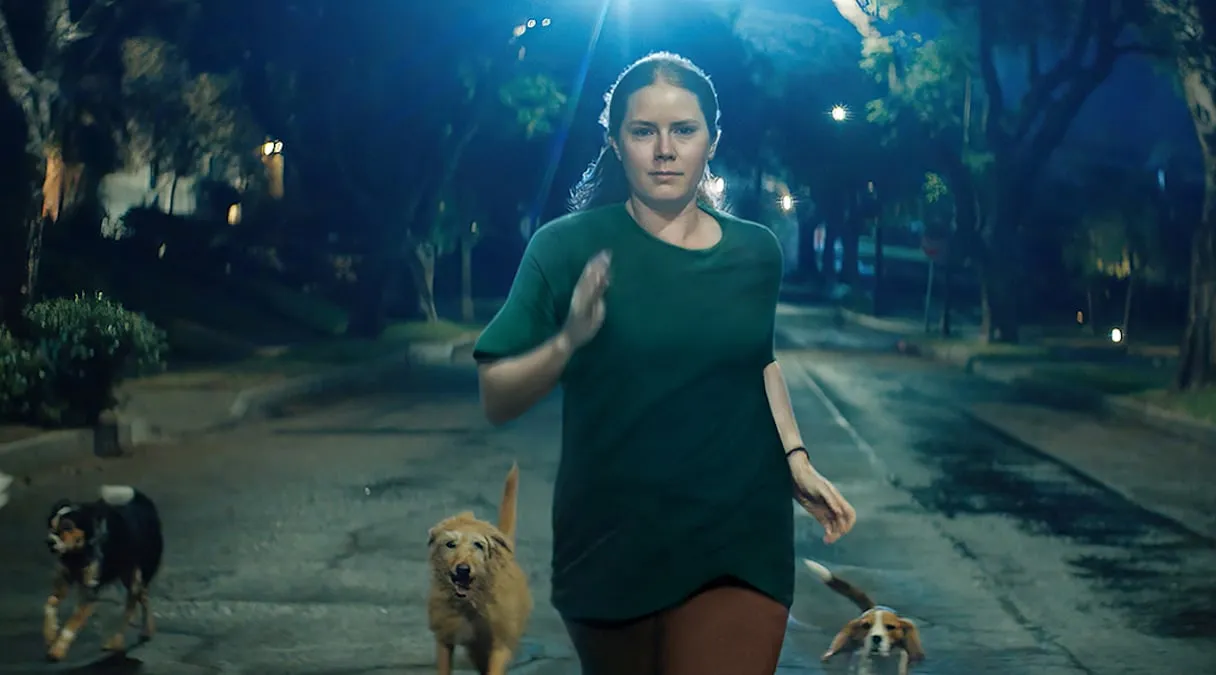
Exploring Gender Dynamics in “Nightbitch”: A Comedic Take on Motherhood
Reflecting on past interviews, take Katy Perry’s response during the Call Her Daddy podcast when the topic of collaborating with Dr. Luke arose. Instead of addressing this contentious issue, she veered into an unexpected discussion about motherhood and spirituality. The film Nightbitch shares a similar tendency, albeit with a more coherent narrative.
A Year for Messy Women in Horror
As 2024 unfolds, the horror genre has seen a delightful surge in stories featuring complex female characters. I recently attended the screening of Nightbitch, directed by Marielle Heller, at the AFI Fest. While it straddles the line between comedy and thriller, it successfully embodies both genres. The film masterfully oscillates between laughter and drama, offering an engaging experience that resonates with mothers in the audience who are likely to find humor in its melancholic undertones.
Adaptation of Rachel Yoder’s Work
Nightbitch is based on Rachel Yoder’s 2021 novel, and it retains some magical realism elements. However, the film takes a more humorous approach. For example, while the act of a mother feeding her toddler raw meat is alarming in theory, it becomes a comedic visual in the film, symbolizing the protagonist’s evolving relationship with her son as she reconciles her burgeoning canine instincts.
Character Transformation and Themes
Starring Amy Adams, who is also a co-producer, the film presents her character, referred to as “Mother,”an artist and overwhelmed stay-at-home parent. As she grapples with her identity, she believes she is transforming into a dog, experiencing physical changes such as developing fur, a heightened sense of smell, and a craving for meat. This transformation deepens her isolation, particularly as her husband, played by Scoot McNairy, frequently travels for work, leaving her to navigate the monotony of parenting alone.

Violence and Feminine Themes
As the narrative progresses, the character’s transformation escalates, culminating in her embracing a wild, liberated version of herself. This evolution, reminiscent of Kafka’s Metamorphosis, reveals the darker aspects of womanhood—the challenges of motherhood, societal expectations, and the daily struggles against male arrogance. However, despite its comedic elements, the film does not shy away from depicting violence, earning a “Not Safe for Cats” designation.
Motherhood and Identity
At its core, Nightbitch addresses significant issues surrounding motherhood, generational trauma, and the quest for personal freedom. These themes resonate deeply, particularly with new parents—especially women, who often feel pressured to sacrifice personal identity for family demands. The protagonist’s identity is stripped away, underlying the societal expectation to conform to the role of “Mother”at the expense of personal aspirations.
Critique of Stereotypes and Expectations
While entertaining, Nightbitch occasionally leans into clichés, presenting a somewhat pedestrian metaphor for reclaiming one’s individuality. Similar to criticisms leveled at films like Barbie, it raises provocative questions about the burdens society places on mothers, often without offering deeper insights or resolutions.
Final Thoughts on “Nightbitch”
Despite its flaws, Nightbitch remains an enjoyable watch, capturing a distinct style of millennial feminism that mixes dark humor with moments of sharp societal critique. While the protagonist expresses understandable anger towards her circumstances, her character arc lacks depth; she oscillates between derision for other mothers and a budding camaraderie that feels rushed.
Ultimately, Nightbitch presents a commendable, albeit imperfect, exploration of womanhood. It voices relatable frustrations of contemporary women, making one eager to see how future generations, like Gen Z, will tackle similar narratives. The film is set to hit theaters on December 6, 2024, promising to spark important conversations.




Leave a Reply